Kii Province (Shogun era; now Wakayama Prefecture and part of the Mie Prefecture)
by
Motonobu Aoo and Toshiro Eirakayu
Rare map of Kii
Detail
Date of this map: ca. 1820
Dimensions (with margins): 32,7 x 26,9 cm
Condition: Very good. Original colouring. Strong woodcut print on Japanese rice paper on two sheets and clear image. Sufficient margins to frame.
Condition rating: A+
Verso: blank
From: Kokugun Zenzu (Atlas of Japan, deluxe version)
Price (without VAT, possibly to be added): €250,00 (FYI +/- $277,50 / £222,50)
Unless otherwise specifically stated on this map page, we charge the following expedition costs in euro (unfortunatelly, gone up with Covid, but still too low in reality!):
– Benelux: 40 euro
– Rest of Europe: 60 euro
– Rest of the World: 100 euro
In stock
Related items
-

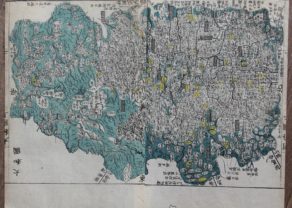
Yamato Province (Shogun era; now Nara Prefecture)
by Motonobu Aoo and Toshiro EirakayuPrice (without VAT, possibly to be added): €350,00 / $388,50 / £311,50Rare map of Yamato (Nara)
-

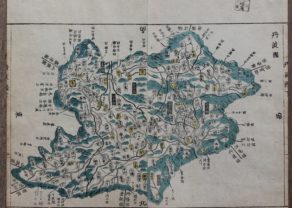
Settsu Province (Shogun era; now Osaka city)
by Motonobu Aoo and Toshiro EirakayuPrice (without VAT, possibly to be added): €350,00 / $388,50 / £311,50Rare map of Settsu (Osaka)
-

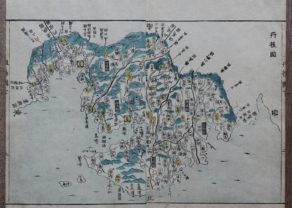
Tango Province (Shogun era; now northern part of Kyoto Prefecture)
by Motonobu Aoo and Toshiro EirakayuPrice (without VAT, possibly to be added): €250,00 / $277,50 / £222,50Rare map of Tango (Northern Kyoto prefecture)
-

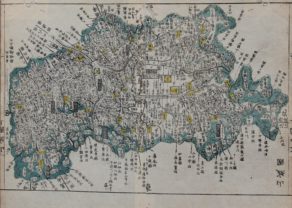
Iga Province (Shogun era; now in Mie Prefecture)
by Motonobu Aoo and Toshiro EirakayuRare map of Iga
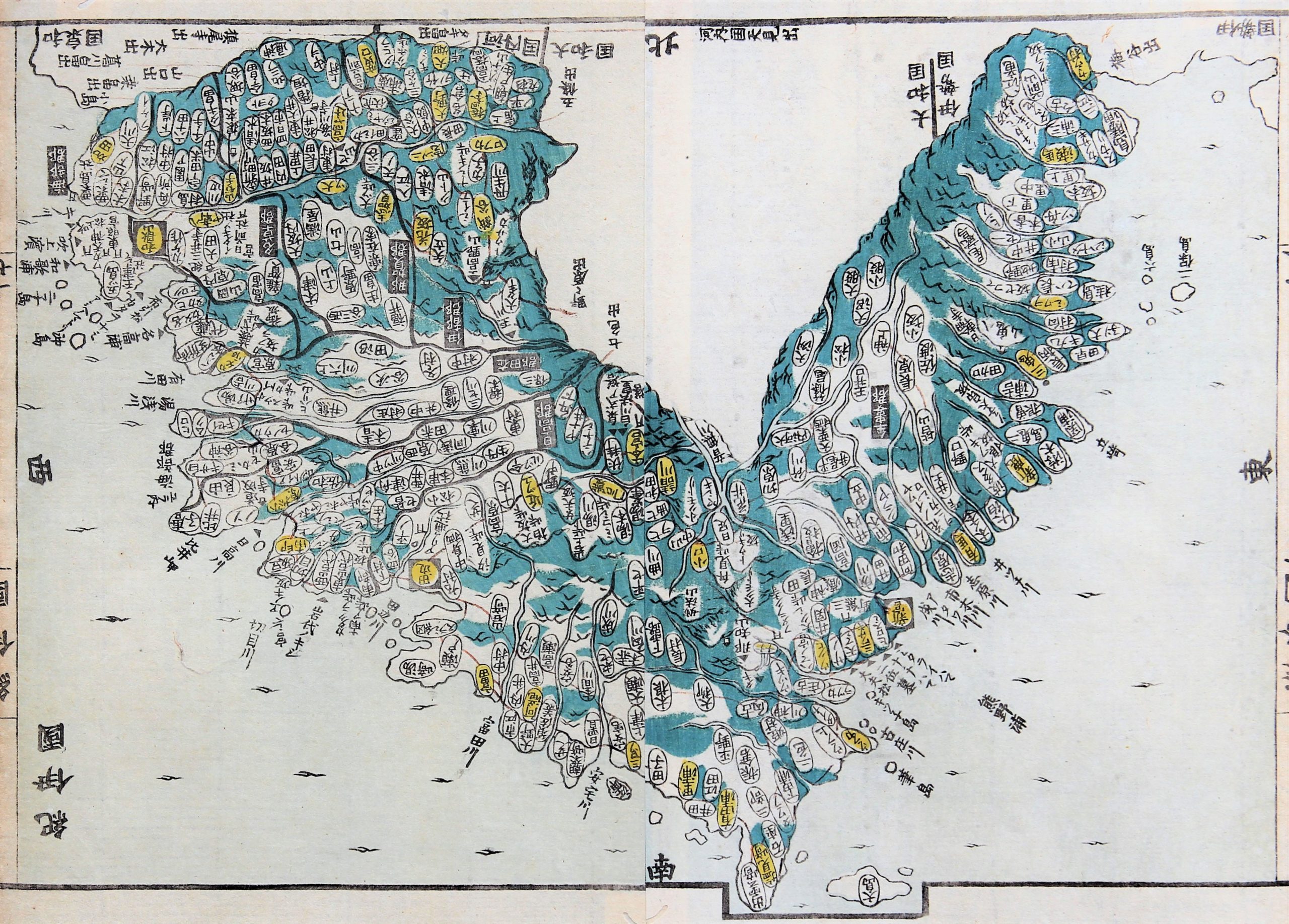
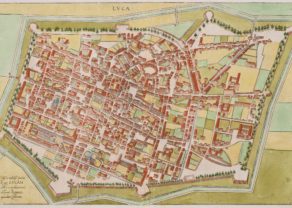
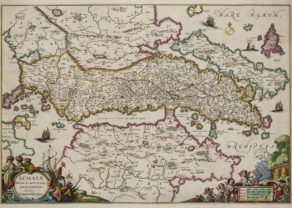
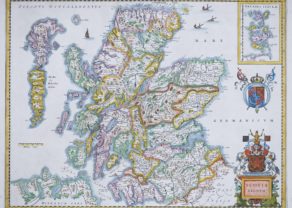
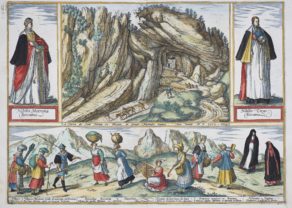
Kii
was a province of Japan in the southern part of Honshu. The province consisted of the current Wakayama prefecture and the southern part of Mie prefecture. Kii was next to the provinces of Ise, Izumi, Kawachi, Shima and Yamato. The Kii peninsula takes its name from the former province.
During the Edo period, the Kii clan of the Tokugawashogunate had its castle in the city of Wakayama:
Kokugun Zenzu
The Kokugun Zenzu was an atlas made under the Tokugawa shogunate and given as a present to the favorite warlords. It contains more than 70 regional maps of Japan and was compiled by Motonobu Aoo and Toshiro Eirakayu.
Ino Tadataka
Based on the work of Japanese master Ino Tadataka (11 February 1745 – 17 May 1818). He was a Japanese surveyor and cartographer. He is known for completing the first map of Japan using modern surveying techniques.
He surveyed Japan, a task, which consumed the 17 years of his life, covered the entire coastline and some of the interior of each of the Japanese home islands. During this period Inō reportedly spent 3,736 days making measurements (and traveled 34,913 kilometres), stopping regularly to present the Shogun with maps reflecting his survey’s progress. He produced detailed maps (some at a scale of 1:36,000, others at 1:216,000) of select parts of Japan, mostly in Kyushu and Hokkaido.